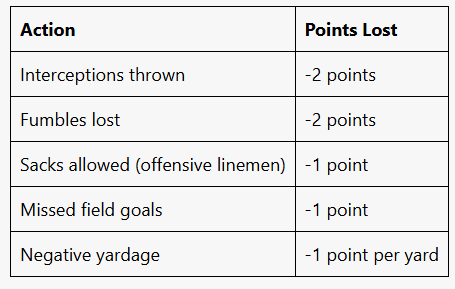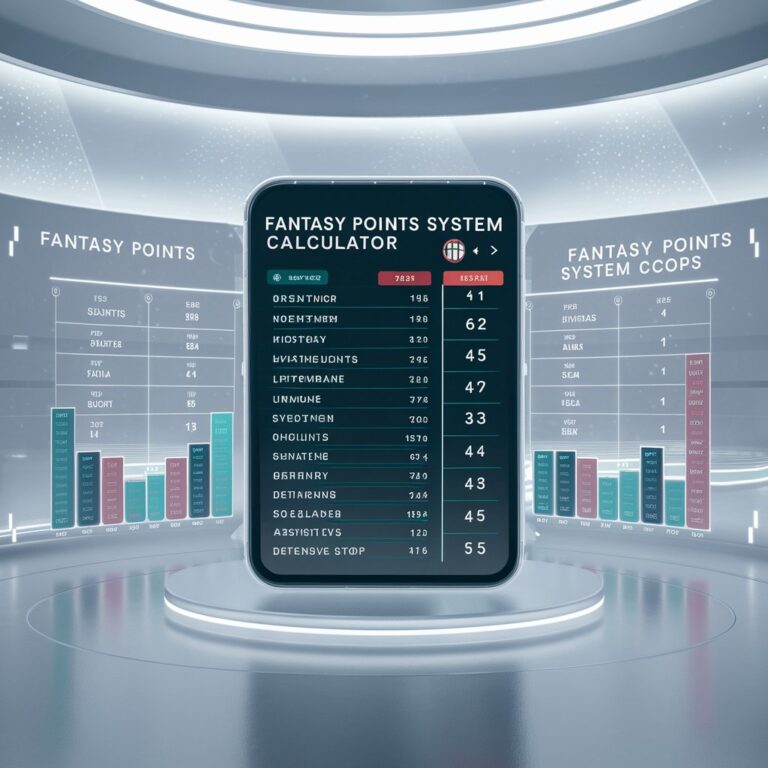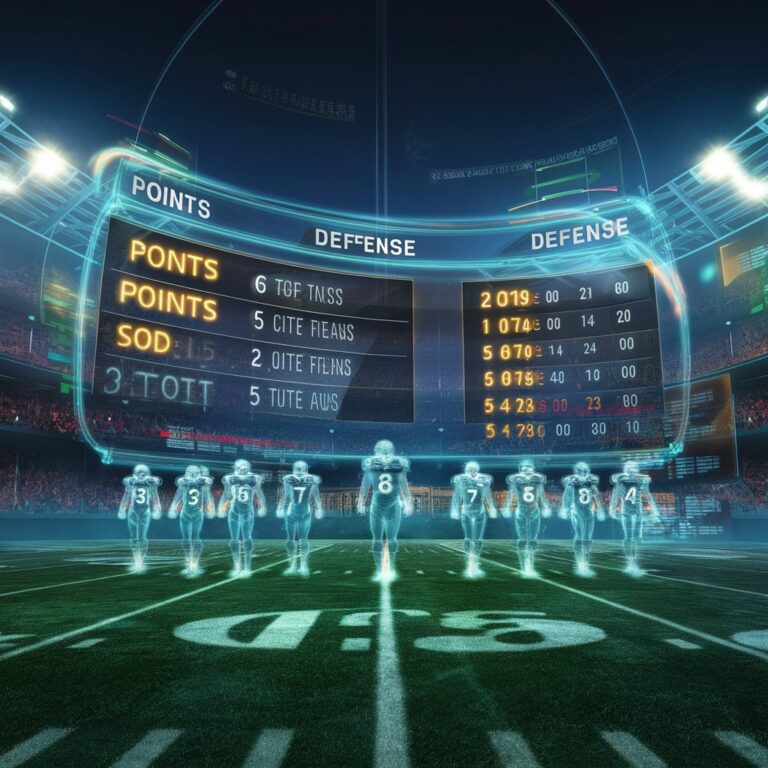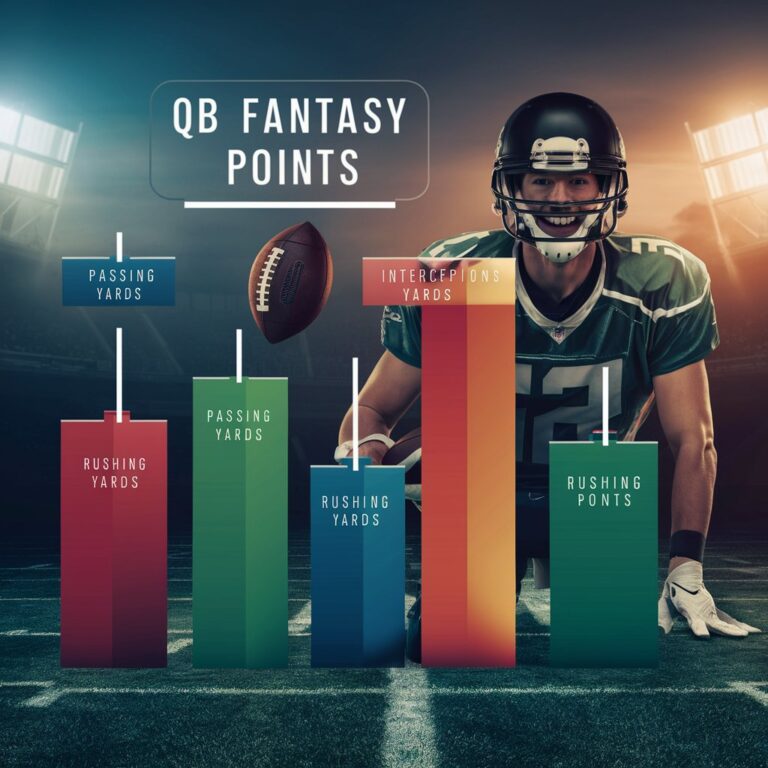Fantasy Football Fumbles: How Do You Get Negative Points in Fantasy Football?
Negative points in fantasy football can arise from various player actions during a game. Each league may have its own scoring system, but common factors include turnovers, penalties, and poor performances. When players make mistakes or fail to perform as expected, fantasy managers may find themselves losing points, ultimately affecting their standings in the league.
Common Ways to Accumulate Negative Points
To better understand how do you get negative points in fantasy football, let’s explore the most common scenarios:

1. Interceptions Thrown
One of the most significant ways to rack up negative points is through interceptions. If your quarterback throws an interception, many leagues penalize the player by deducting two points. This can drastically affect your overall score, especially if your quarterback has multiple interceptions in a game.
2. Fumbles Lost
Fumbles can also lead to negative points. When a player loses possession of the ball, it typically results in a two-point penalty. This rule applies to any player who fumbles, including running backs, wide receivers, and quarterbacks.
3. Sacks Allowed
Offensive linemen can contribute to negative points as well. If a quarterback is sacked, the offensive lineman responsible for the sack may incur a one-point penalty. While this might seem minor, it can add up over the course of the season.
4. Missed Field Goals
Kickers play a crucial role in fantasy football, and missing a field goal can lead to negative points. Most leagues deduct one point for each missed attempt, which can be particularly frustrating if a kicker is consistently missing opportunities to score.
5. Negative Yardage
If a player is tackled behind the line of scrimmage, they can accumulate negative yardage. For every yard lost, a player typically incurs a one-point penalty. This can happen during running plays or when a quarterback is sacked.
How Negative Points Affect Your Team
Negative points can drastically impact your overall team performance. A single player’s poor performance can lead to significant point deductions, affecting your chances of winning the matchup. Here are some ways negative points can affect your team:
Impact on Standings
In a tightly contested league, every point matters. If key players on your team consistently accumulate negative points, it can lead to losses that impact your overall standings. This is particularly crucial during playoffs, where every game counts.
Strategies to Minimize Negative Points
Here are some strategies:
1. Research Player Performance
Always check player stats before drafting or starting them. Look for trends in interceptions or fumbles. Players with a history of turning the ball over can be risky choices.
2. Monitor Matchups
Some defenses are better at forcing turnovers than others. Pay attention to matchups and consider benching players facing tough defenses known for creating negative plays.
3. Diversify Your Roster
Having a balanced team can mitigate the impact of negative points. If one player underperforms, others can help maintain your overall score.
Fantasy Football Scoring Systems
Different leagues have different scoring systems, which can affect how negative points are calculated. Here’s a brief overview of common scoring formats:
 .
.
Fumbles and Interceptions: The Cost of Turnovers
One of the most common ways to incur negative points in fantasy football is through turnovers, namely fumbles and interceptions.
When a player fumbles the ball and loses possession to the opposing team, fantasy managers may incur a deduction of points, reflecting the detrimental impact of turnovers on real-life football outcomes.
Similarly, interceptions thrown by quarterbacks result in negative points for fantasy managers, punishing poor decision-making and errant throws that compromise team success.
Missed Field Goals and Extra Points: Kicking Woes
Kickers, often overlooked but essential contributors to fantasy football success, can also be the source of negative points.
When a kicker misses a field goal attempt or an extra point, fantasy managers may find themselves on the receiving end of deductions, as the failure to convert scoring opportunities carries consequences in the world of fantasy football.
While kickers are typically relied upon for reliable point production, missed kicks can quickly sour the outlook for fantasy teams, underscoring the importance of consistency and accuracy at the kicking position.
If a field goal attempt is missed from zero to 39 yards, it usually results in a negative two (-2) point deduction.
For a missed field goal from 40 to 49 yards, the deduction is typically one negative (-1) point
Statistical Insights: Understanding the Impact of Negative Points
Statistical analysis provides valuable insights into the prevalence and impact of negative points in fantasy football.
According to data from ESPN Fantasy Football, turnovers, particularly interceptions, are among the leading causes of negative points for fantasy managers.
Quarterbacks who struggle with turnovers can significantly undermine their fantasy value, offsetting their contributions in passing yards and touchdowns with deductions for interceptions thrown.
Similarly, missed field goals and extra points can have a detrimental impact on a kicker’s fantasy production, highlighting the importance of reliability and precision in the kicking game.
FAQs
What are the most common ways to get negative points?
The most common ways to get negative points include interceptions thrown, fumbles lost, and missed field goals.
Do all fantasy leagues have the same scoring rules?
No, scoring rules can vary significantly between leagues. Always check your league’s scoring settings for specifics.
How can I avoid negative points?
To avoid negative points, research player performance, monitor matchups, and diversify your roster.
Can negative points affect my playoff chances?
Yes, negative points can impact your overall score and standings, which is crucial for playoff qualifications.
What happens if my player gets injured during a game?
Injuries typically do not result in negative points, but if a player underperforms due to an injury, they may still contribute negatively to your score.
Conclusion:
As fantasy football managers navigate the highs and lows of the season, negative points serve as a stark reminder of the unpredictability and volatility inherent in the game.
While touchdowns and big plays may steal the spotlight, turnovers and missed opportunities can quickly turn the tide, leaving fantasy managers grappling with disappointment and frustration.
By understanding the sources of negative points, leveraging statistical insights, and implementing strategic approaches, fantasy managers can navigate the pitfalls of fantasy football with confidence, striving for victory in the face of adversity.





